Abandoned Amusement Parks around the U.S. that will give you the chills.
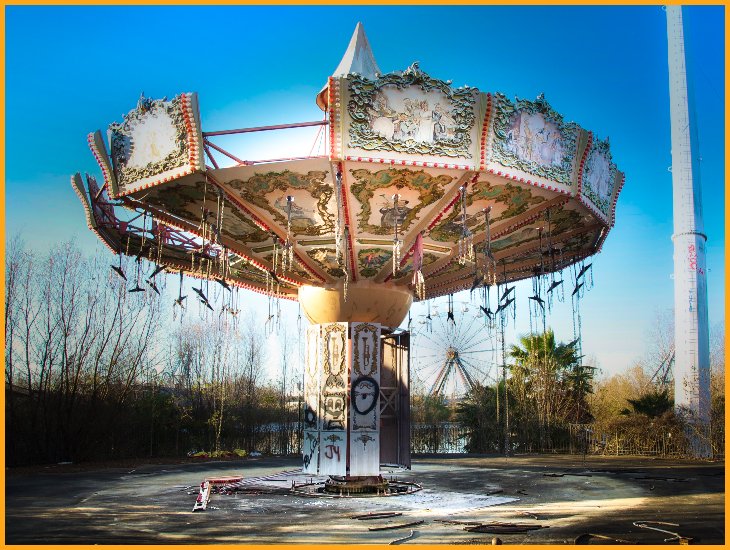
A photojournalist known as Seph Lawless has made a career of documenting
urban decay and abandoned places in America and beyond.
Over the years, he's visited a number of abandoned theme parks in the U.S. -
and the photos are haunting. Check out the 30 photos below to see the eerie remains of 10 different neglected parks for yourself.
ENCHANTED FOREST PLAYLAND
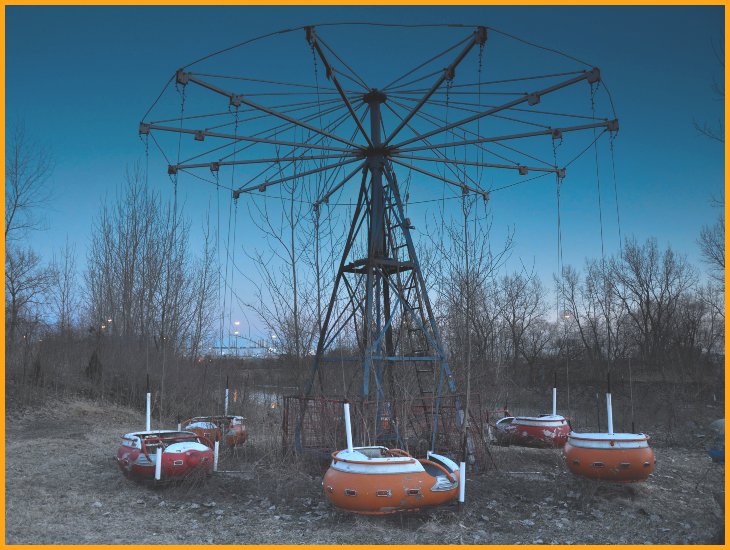
The Enchanted Forest Playland in Ohio only ran for five years
before shutting down. Amateur builder R.W. Bishop purchased 14 acres
in North Toledo in 2000 and transformed the land into an amusement park
that he called "Enchanted Forest Playland." Despite Bishop's hopes, attendance never picked up enough to sustain the park, and five years after its grand
opening, the Enchanted Forest Playground officially shut down.
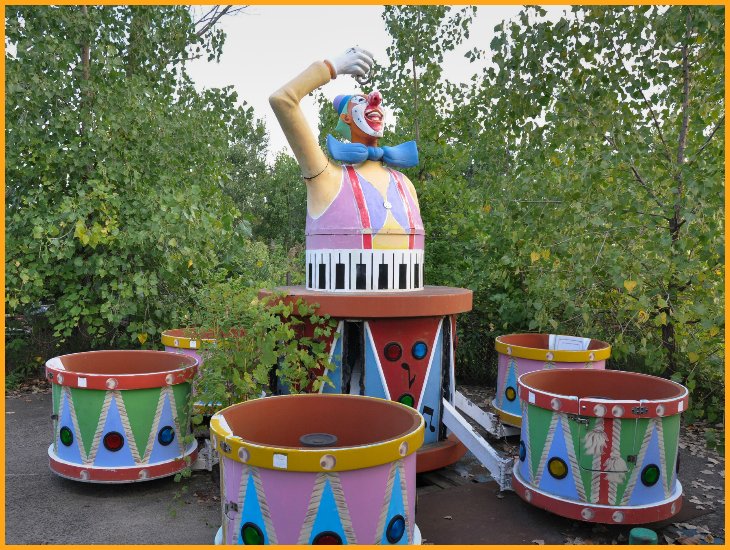
The park's owner has been selling the remaining equipment and rides in the
hopes of getting out of debt. The isolated clown ride, pictured above,
is for sale.
THE FUN SPOT AMUSEMENT PARK

Small entertainment venues like the Fun Spot Amusement Park in Indiana were
the precursors to the corporate theme parks in operation today. The Fun Spot Amusement Park and Zoo opened its doors to the public in 1956. For the most
part, the park catered to tourists exploring Indiana's northern lakes, and it
managed to grow and expand over the years.
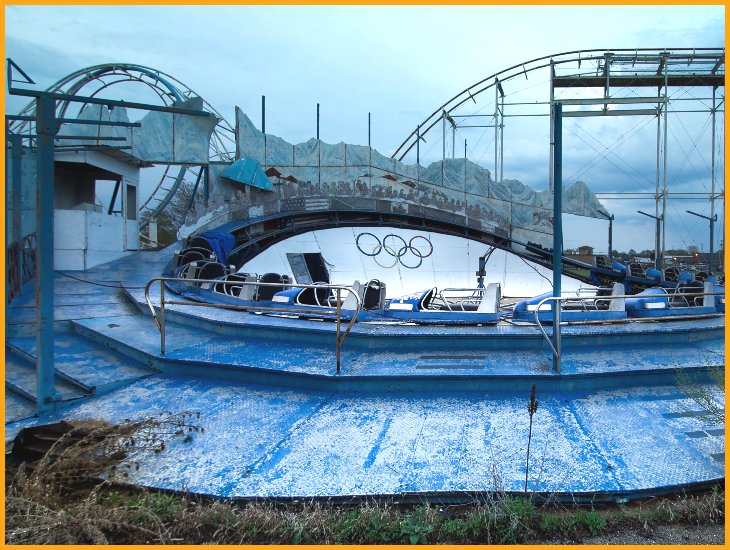
The family-owned park boasted unique rides and a remote location. The
Matterhorn ride, pictured above, was supposed to simulate an Olympic
bobsled race - now, it looks like an arena in ruins.

At one point, the Fun Spot was doing well enough to add a waterpark
and a zoo ...
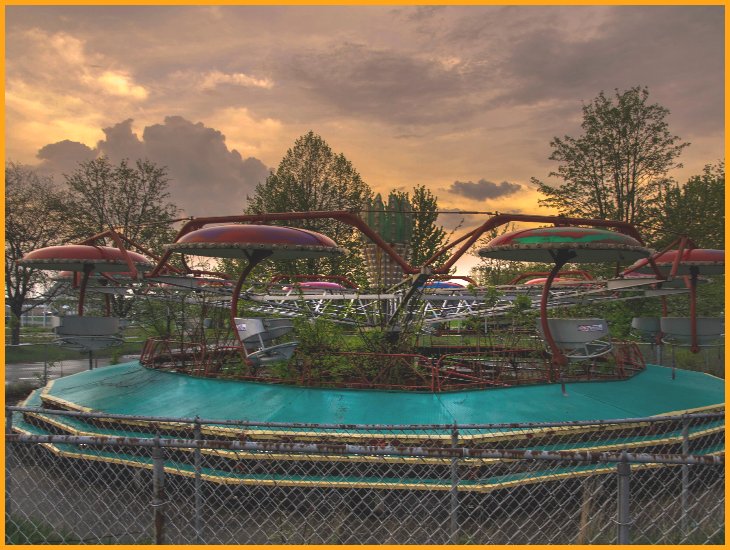
... but as mega-venues like Six Flags, Kings Island, and Cedar Point started to
thrive, the Fun Spot's popularity dwindled. The amusement park's hours of
operation were sporadic and unpredictable near the end.
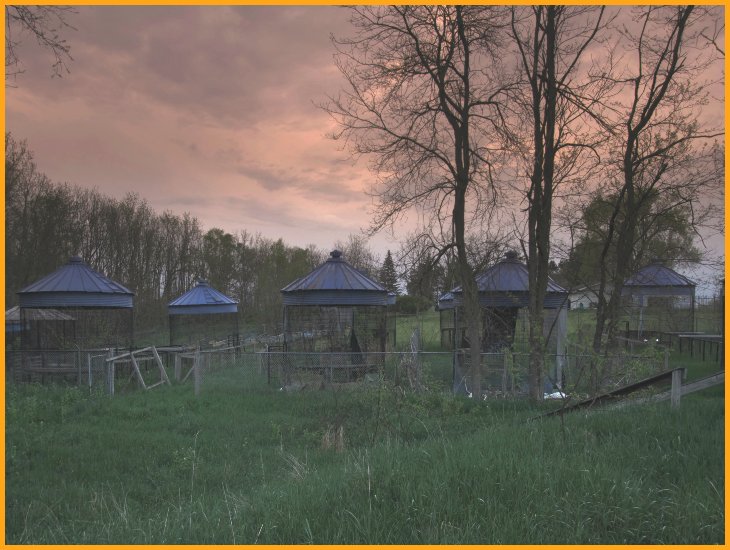
The park shut its doors in 2008, 52 years after its debut.
The park blamed "the economy" for its closure.
SIX FLAGS - NEW ORLEANS

This Six Flags theme park in New Orleans, Louisiana, was ravaged
and subsequently abandoned after Hurricane Katrina hit in 2005. A sign
at the entrance of the park still reads "Closed for Storm" 13 years later.
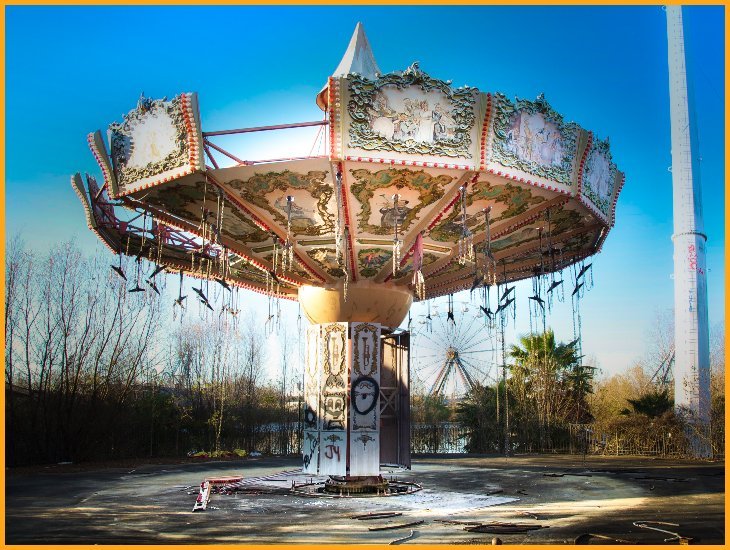
The park, which was originally called "Jazzland," was built in 2000, before
Six Flags acquired it in 2002. The Six Flags company terminated their lease
and gave the park up to the City of New Orleans following the hurricane.
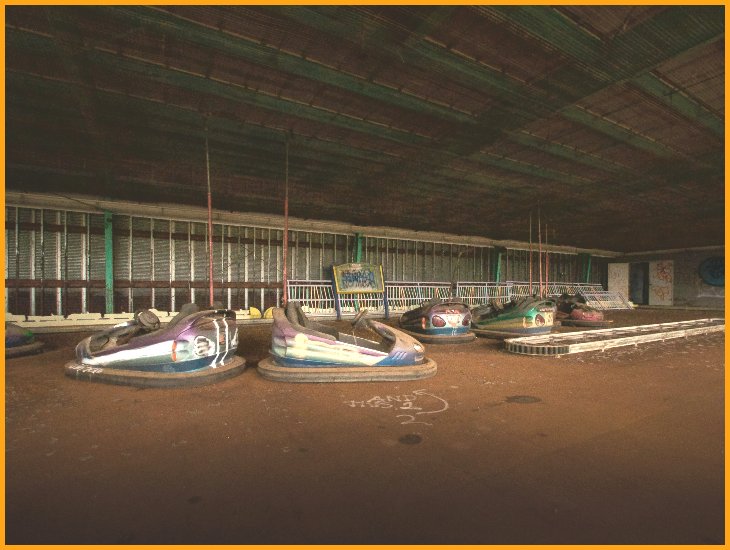
The decaying rides and apocalyptic landscapes serve as an eerie reminder of
the hurricane's devastation. Hurricane Katrina's calamitous reach spanned
multiple cities, but it primarily affected New Orleans; nearly 20,000 people
were displaced and relocated to the city's superdome, and 1,833 people
died in the aftermath.
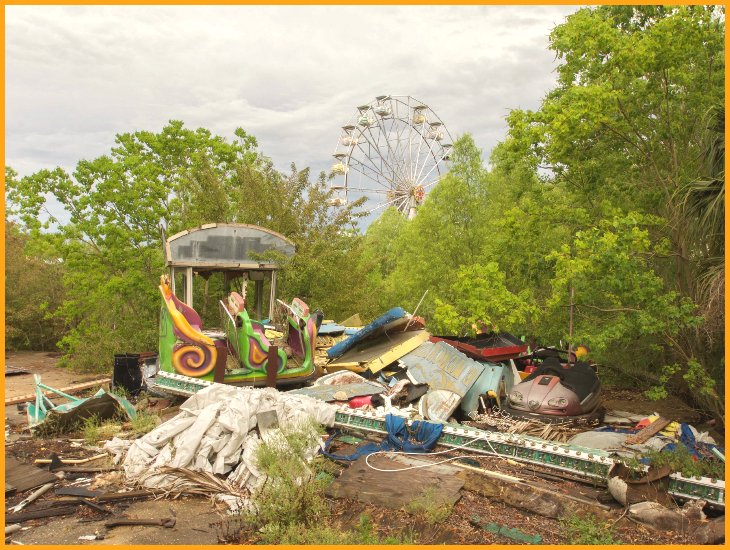
There's been talk of rehabilitation, but the park still remains in shambles.
Several Hollywood films have used the ruinous landscape to their advantage,
like "Jurassic World" and "Dawn of the Planet of the Apes."
JOYLAND AMUSEMENT PARK
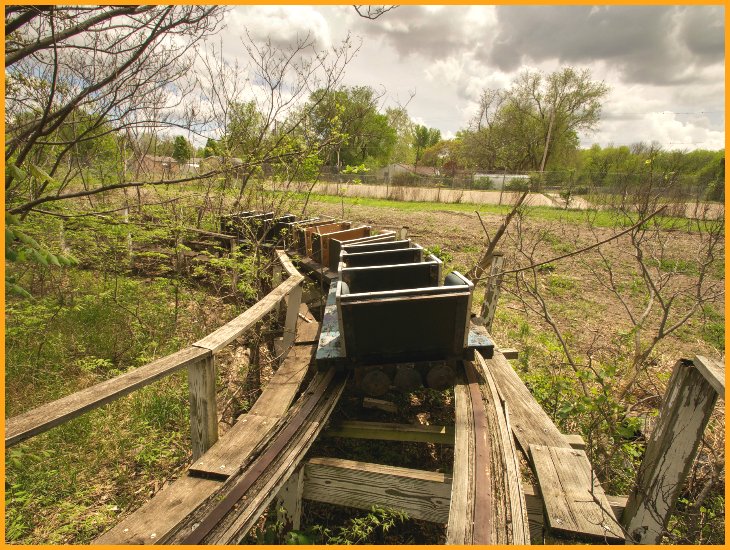
Once the largest theme park in Central Kansas, The Joyland Amusement Park
was home to one of the last surviving original wooden coasters. The park was
founded in 1949, and was owned by several different families and cor-
porations over the decades, until an incident concerning the park's Ferris
wheel served as a catalyst for Joyland's eventual demise.
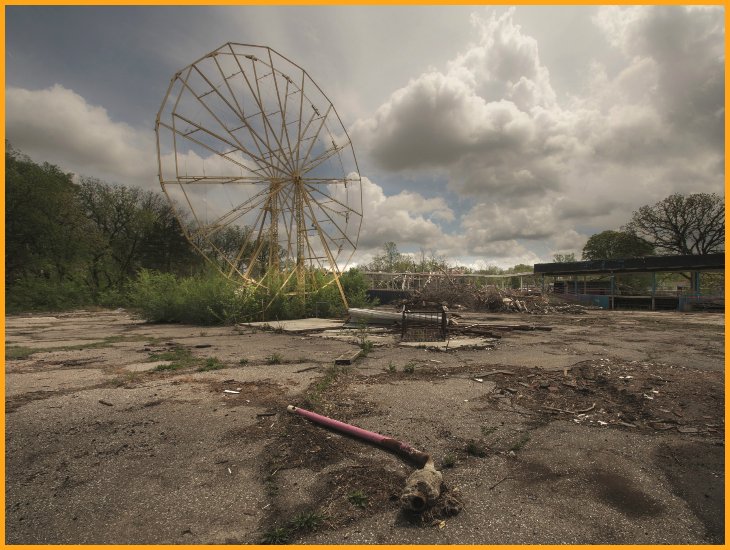
In April 2004, a 13-year-old girl fell 30 feet from the Ferris wheel and was
gravely injured. The park had to close for an investigation of the incident. The
US Consumer Product Safety Commission investigated the incident and the
park closed for the 2004 season before permanently shutting down in 2006.

It never reopened, and has been repeatedly targeted by vandals since its closure.
DISNEY RIVER COUNTRY
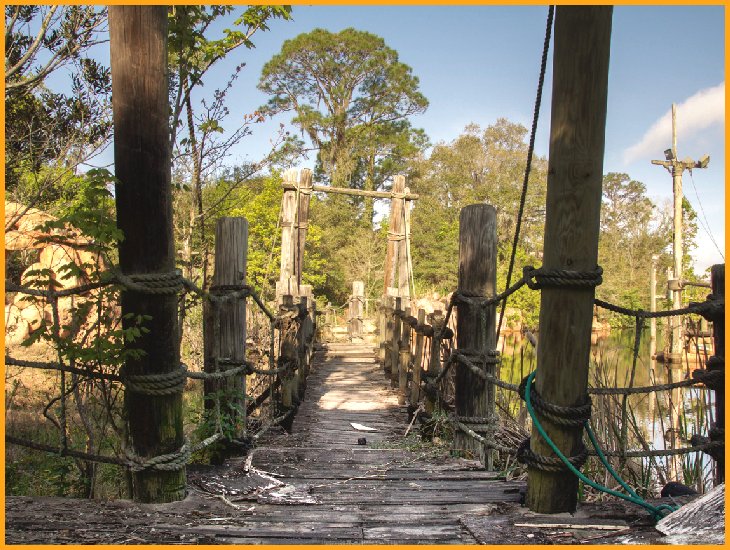
Walt Disney World’s first water park opened in 1976 in Orlando, Florida. The
park was called Disney River Country, and ceased operations in 2001 after
Disney's second and third water parks, called Typhoon Lagoon and Blizzard
Beach respectively, became more popular attractions for guests.

As attendance dwindled, Disney decided to let the park deteriorate rather than
demolish it. Disney was initially willing to reopen the park if there was "enough
guest demand", which could explain the company's decision to forgo hypo-
thetical demolition plans. Now, a sense of abandonment permeates the
once-lively waterpark.
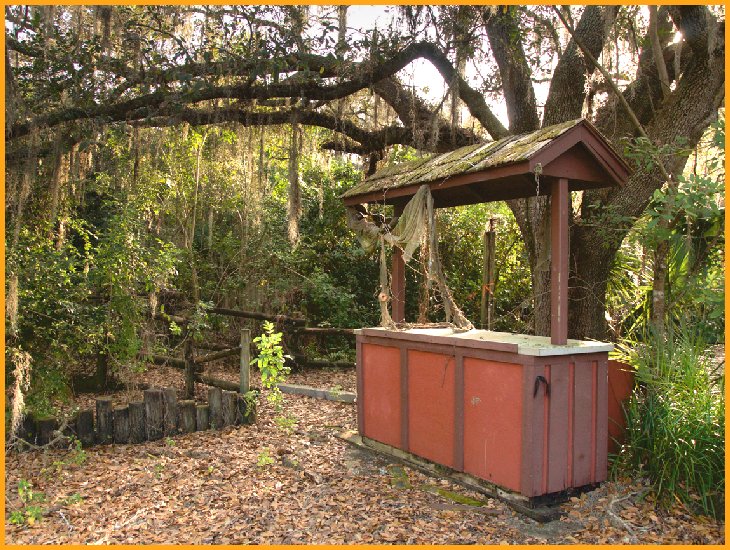
Lawless hopes that Disney will repurpose the land in the park to be
more hospitable to surrounding wildlife.
BUSHKILL PARK
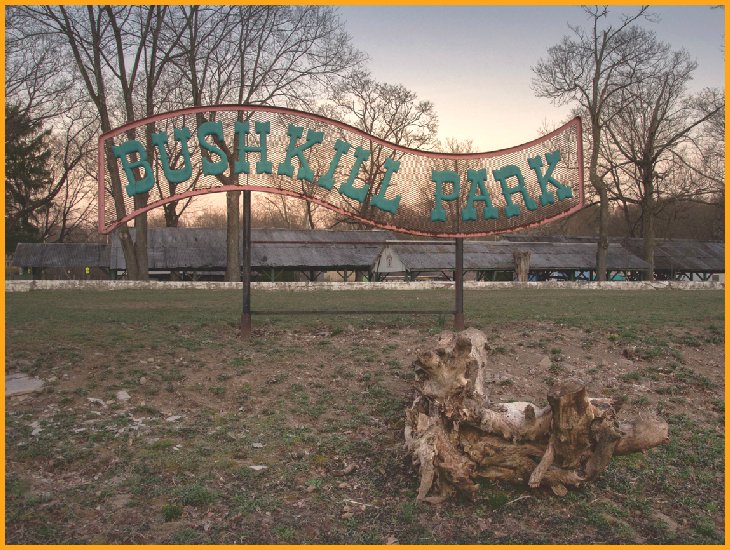
Bushkill Park in Philadelphia, Pennsylvania, is yet another park that fell victim
to flooding. The eastern Pennyslvania theme park opened its doors in 1902
until a series of floods overtook the property in 2007, damaging it beyond
what owner Neal Fehnel could repair.
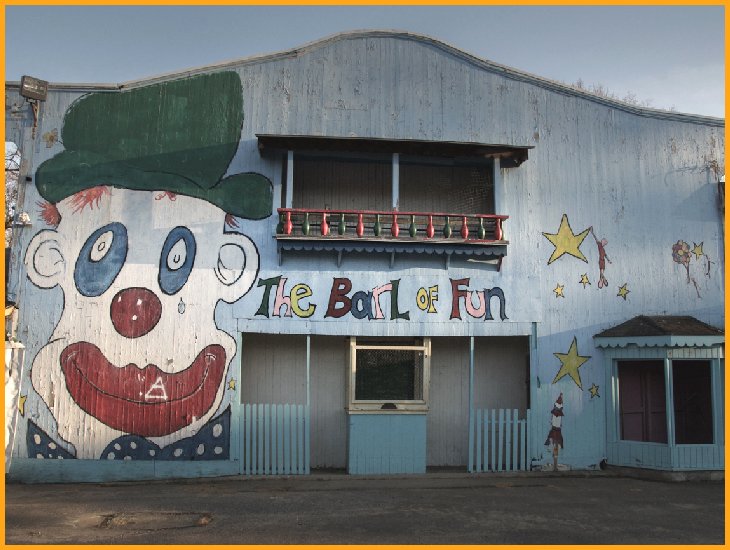
Of the park's 17 vintage attractions, 14 have been sold. Bushkill Park's
website still reads: "The owners of Bushkill Park are working hard to repair
the damage that has been done by the floods and other means."

The park has reopened for special occasions over the years, such as the
owner's 115th birthday, although the rides are still not operational. Fehnel's
hope is to have the rides back up and running by summer 2019.
THE LAND OF OZ THEME PARK

A fire, rather than a twister, meant the end of The Land of Oz theme park in
North Carolina. The park, which opened in 1970 - 31 years after the release
of the "Wizard of Oz" film - closed in 1980 after its owner passed away and
a fire destroyed the site's Emerald City.

Even though the attraction shut down, the park hasn't been completely
abandoned, as it's home to annual local events. The eerie Land of Oz
reopened in 1991 for a single day for curious visitors, and locals maintain
the premises enough to run an annual Autumn in Oz event.
CHIPPEWA LAKE PARK
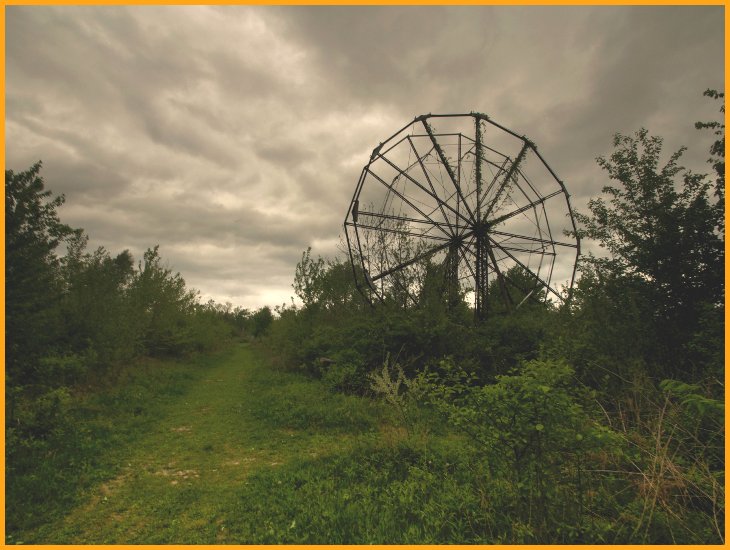
The remains of Chippewa Lake Park are hidden on a lake shore in Medina,
Ohio. At the height of its popularity, the park had three operational roller
coasters, a carousel, a ballroom, and more.
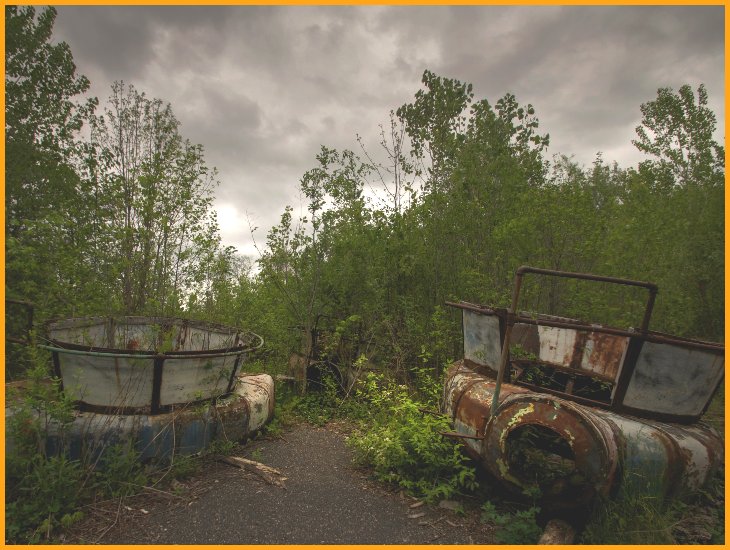
The park, which operated from 1878 to 1978, is now overgrown. Rides are
ensnared by trees and strewn throughout the landscape.
GEAUGA LAKE PARK

Established in 1887, Geauga Lake was an amusement park in Aurora, Ohio.
Funtime Incorporated purchased the park in 1969; 31 years later, Geauga
Lake received a $40 million expansion and became Six Flags Ohio from
2000 to 2004.
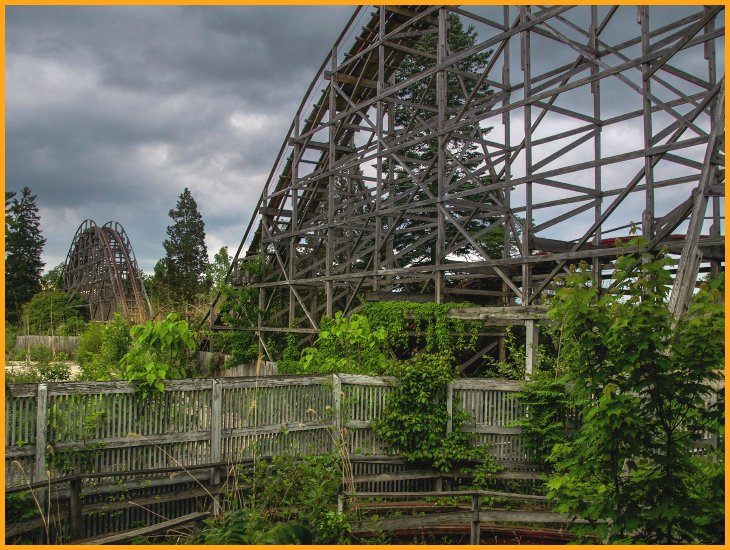
The park went through several acquisitions, and was even billed as a
"Wildwater Kingdom" from 2004 to 2007. Six Flag's reign didn't last long; Cedar
Fair acquired the park from 2004 to 2007, and invested $26 million. They
eventually renamed it: "Geauga Lake & Wildwater Kingdom."
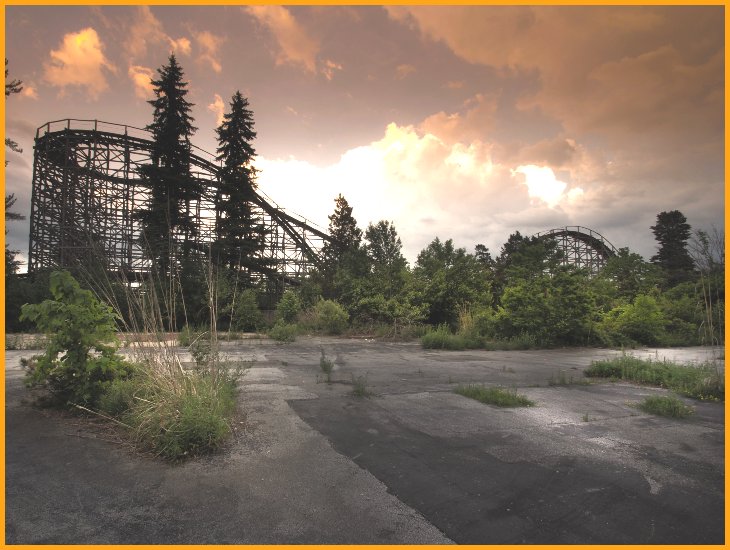
However, it closed in 2008. The Wildwater Kingdom sector continued its
operation until the 2016 season.
LAKE SHAWNEE PARK

Lake Shawnee Park in West Virginia was shut down in 1966 after two young
patrons died on site, and now it's believed to be cursed. The park, which
was built on the site of a Native American burial ground in 1926 in Princeton,
West Virginia, was repurchased by a man named Gaylord White in 1985.

The park's owner reopened the venue for three years before it ceased
operations once more. The Ferris wheel and swing ride are all that
remains of the park.
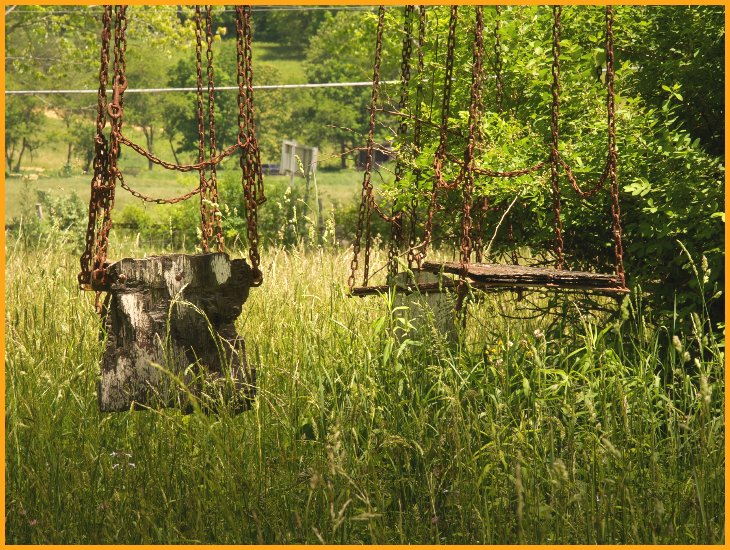
Today, Lake Shawnee Park is a huge draw for paranormal investigators. Since
closing, the park has been featured on the Discovery Channel's "GhostLab,"
as well as the Travel Channel's "The Most Terrifying Places in America."